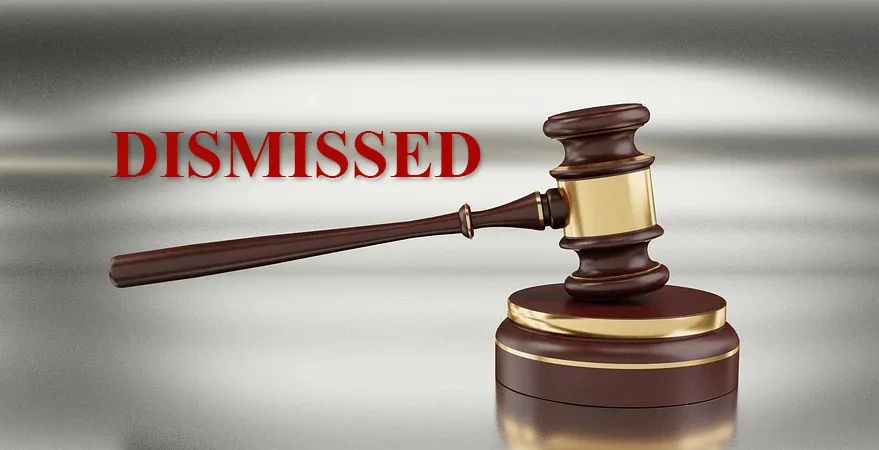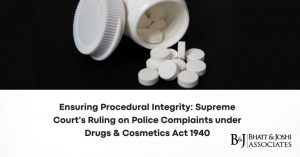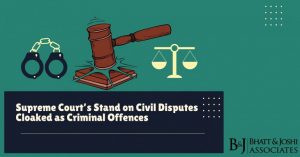Disposal of Case without Trial
Introduction
It is the duty of the Court (or any legislative body) to hold a full-fledged trial of an accused before passing a judgment as to whether the accused is guilty or innocent. A case that usually undergoes a full trial brings about either conviction or acquaintance. The Code of Criminal Procedure, 1973 is the procedural law that decides the course of the criminal trial based on substantive criminal law (the Indian Penal Code) and other criminal rules.

The code of criminal procedure provides for four types of trial procedures. They are (i) trial before a court of Sessions, (ii) trial warrant cases by Magistrates, (iii) trial of summons cases by Magistrates, and (iv) summary trials. Both the trial before the court of sessions and warrant cases by Magistrates are tried under the procedure of warrant cases and the remaining two are tried in summons cases trial.
The primary object of the system is to ensure that a trial is reasonable, however, in certain circumstances, the discharge of the accused can also be made without undergoing a full trial.
Provisions dealing with Disposal
- Section 468, Cr.P.C – Criminal proceedings barred by limitation. If the accused raises a primary plea saying that the criminal procedures against him are barred by the time constraint stated under the law, at that point in time, then the ongoing proceedings will be stopped.
- Section 300, Cr.P.C – Compounding of offences. Section 320 (1) specifies the offences, which can be compounded without the permission of the Court. These offences are mostly of a minor nature viz injuring religious feeling Section 320 (2) of Cr.P.C gives the list of offences, which can be compounded with the permission of the court only. These offences are mostly of the same nature as described in sub-section (1), but in graver form.
- Section 239, Cr.P.C – Discharge of Accused. When the magistrate considers the charge against the accused as groundless, after giving the prosecution and the accused an opportunity of being heard, the accused can be discharged after recording reasons.
- Section 306 and 307, Cr.P.C – Conditional pardon to accomplice. Criminal proceedings shall come to an end if he is given a pardon in accordance with these provisions.
- Section 249, Cr.P.C – Absence of the complainant. In a warrant case, on the day fixed for the hearing of the case, if the complainant is absent and the offence may be lawfully compounded or is not a cognizable offence then the magistrate has the power to discharge the accused. In a summons case, if the complainant does not appear on any day that has been fixed for the hearing of the case, Magistrate has the wide discretion to either acquit the accused or adjourn the hearing of the case or may dispense with the attendance of the complainant and proceed with the case as per his own discretion.
- Section 321, Cr.P.C – Withdrawal by the prosecution. If an offence falls under this Section, Public Prosecutor(PP) or Assistant PP, with the consent of the Court, at any time before passing of the final judgement may withdraw from the prosecution of any person generally or in respect of any one or more of the offences for which the accused is tried. This can only be done provided that such offences must be provided under of the Code of Criminal Procedure.
- Section 257, Cr.PC – Withdrawal by Complainant. In a summons case initiated on a private complaint, if the complainant at any time before a final order is passed satisfies the magistrate that there are sufficient grounds for permitting him to withdraw his complaint against the accused, then the magistrate may permit him to do so. In a warrant case initiated on a private complaint, the complainant has no power to withdraw the complaint, whereby some allowance may be granted under Section 224.
- Autrefois acquit and autrefois convict. If the accused pleads that he has already been tried for the same offence and has also been acquitted or convicted for the same and that according to the principle of ‘autrefois acquit’ or ‘autrefois convict’ he cannot be tried again. This has been recognised under the Constitution as a fundamental right.
- Section 258, Cr.PC – Power of court to stop proceedings in certain cases. In any summons case instituted otherwise than upon complaint, a magistrate of the first class, or any other judicial magistrate with the previous sanction of the Chief Judicial Magistrate, may stop the proceedings at any stage without pronouncing any judgment. While stopping the proceedings the magistrate shall record reasons for doing so.
- Abatement of proceedings on the death of the accused. The ultimate object of the proceedings is to punish the accused upon his conviction, and so due to the death of the accused, the continuance of the proceeding will be infructuous and meaningless.
Conclusion
Disposal of a case without trial not only saves the court’s time and resources, which can be better utilised elsewhere but also in certain cases helps in restoring harmony that cannot be achieved by conducting a full fledge trial.
Written by Parthvi Patel, student at United World School of Law.









